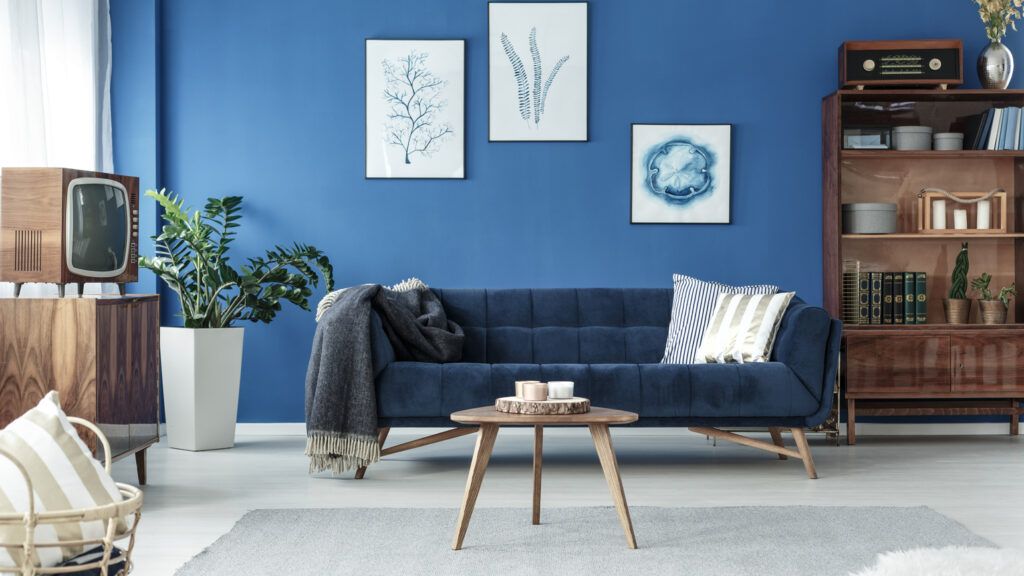In 2008, Joshua Becker had a casual conversation with his neighbor that changed the course of his life. Becker was cleaning out his garage while his son played by himself in the backyard. When he complained to his neighbor about feeling frustrated with the chore, his neighbor commented, “Maybe you don’t need to own all this stuff.”
The comment stuck.
Becker realized that his possessions were holding him back. He and his family became dedicated minimalists, clearing their home of unnecessary belongings and ultimately becoming spokespeople for the minimalist movement.
“I’ve found far more joy and meaning and fulfillment and even happiness in owning fewer possessions, says Becker. “It means my life is more open to the things that I want more of in my life.”
Becker’s new book The Minimalist Home is focused on breaking down how to practically put minimalist concepts to practice in every room of your home. Becker is quick to point out that while decluttering and minimalism are closely related, minimalism is about much more than cleaning house.
“Minimalism is the intentional promotion of the things we most value by removing anything that distracts us from it,” Becker told Guideposts.org. “It’s about minimizing possessions, it’s about owning less, but it’s really more about crafting the life that you want to live. I [got] rid of my possessions so that I [could] free up time and money and energy and space to do the things that mean more to me.”
So how can someone start clearing their space so they can focus on what means the most to them? Becker offers this advice:
1. Start small
Becker’s first suggestion for those looking to declutter is not to tackle too much.
“Most people, when they think about decluttering, they tend to think of their garage or their basement or their arts and crafts room, but those are actually the hardest spaces to finish,” Becker says. “Start in an easy, lived-in space.”
Becker usually recommends starting with your car, then moving to the living or dining room.
2. Decide what the space is for
Once you’ve chosen a room to declutter, Becker says the first thing to do is ask yourself a simple question: what is this room for?
“Define the purpose of your space,” Becker says. “Start looking around your room and looking for the things that don’t help you [achieve that purpose]. What’s detracting from the room’s purpose rather than contributing to it?”
3. Go through your belongings
Becker says it is crucial to actually go through each item in a room before deciding its fate.
“Don’t just scan the room with your eyes or open a closet or open a drawer, but physically touch every single item,” he says. “Then every item can be sorted into one of three piles. Either a discard pile, a relocate pile or a keep pile.”
4. Start with you
For families or those living with roommates, Becker has an extra piece of advice.
“The most important tip is that you can’t start by getting rid of anybody else’s stuff first,” Becker says. “Parents will always think of all the clutter in their kids’ rooms…but it is entirely unfair for you to start by making your kids get rid of their things. You have to do your stuff first.”
5. Avoid stumbling blocks
Everyone has things they are attached to. Whether it’s a special collection or an aversion to getting rid of books or board games, these are the collections of items that become hardest for people to let go of when attempting to declutter.
Becker has one simple tip to keep from getting stuck on your most beloved possessions:
“Don’t [get] rid of the hardest things first,” he says. “Start by getting rid of the easy things.”
Becker says that after going through easier items and seeing some of the benefits of owning less stuff, it becomes easier to approach items they are attached to.
6. Don’t sell—donate
Another stumbling block Becker encounters is when people hold on to things because they want to sell their discarded belongings.
“Trying to sell everything you’re getting rid of just adds time, stress and usually frustration to the process,” Becker says.
Instead, Becker recommends donating your belongings. Don’t get stuck feeling guilty about how much money you spent on items you don’t really need.
“You can’t change the past you can only learn from it,” Becker says. “Just because you made a mistake by buying things that you’re not using doesn’t mean you have to carry [them] into the future.”
7. Ask the hard questions
Becker sees decluttering as being about way more than keeping a clean house. He says analyzing our possessions and attachment to those possessions can bring up uncomfortable feelings for people—and that they shouldn’t ignore those feelings.
“When you start really looking at the things that you have and really trying to get rid of everything that you don’t need, you [ask], ‘Why is it so hard for me to get rid of this or get rid of these types of things?’” Becker says. “Once [you] start facing those questions, that’s when [you’re] really on the verge of some important self-reflection and self-discovery.”
Most importantly, Becker says to focus not on losing clutter, but on regaining control of your space—and your life.
“Minimalism isn’t about the things you get rid of,” Becker says. “It’s about the things you get to add into your life because of the possessions that you’ve gotten rid of.”






